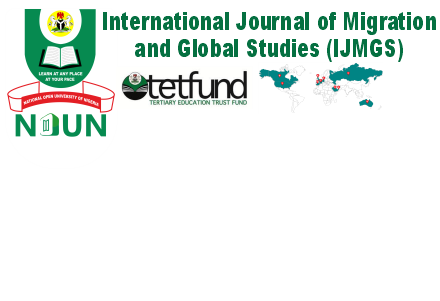Drawing from evidence in sociolinguistics and what Victor Turner (1986) refers to as ‘the anthropology of experience’, this paper analyzes immigration from the perspective of loanwords into various languages. The specific site of contestation is the Hausa language of northern Nigeria. Drawing from the Hausa classical dictionary of Bargery (1934), as well as personal ‘anthropology of experience’ (Turner, 1986), I analyze the shifting patterns of idiolect, sociolect and onomatopoeic migration of Hausa words into linguistic Nigerianism. To provide a wider transnational canvas, I first look at the infusion of loanwords from various language clusters into the English language, the third most spoken language in the world, although the most widely spread. The main premise of the paper is that of language is an ‘intangible’ migrant, often being domesticated in social cultures that radically differ from it, whether regionally, nationally or globally. This contrasts with the notion of human migration, whether temporary or permanent. Language migration is a permanent displacement of words and expressions that over time, contribute towards construction of new identities. The source of the data is the classical Hausa dictionary of Bargery (1934) and personal ‘anthropology of experience’.
